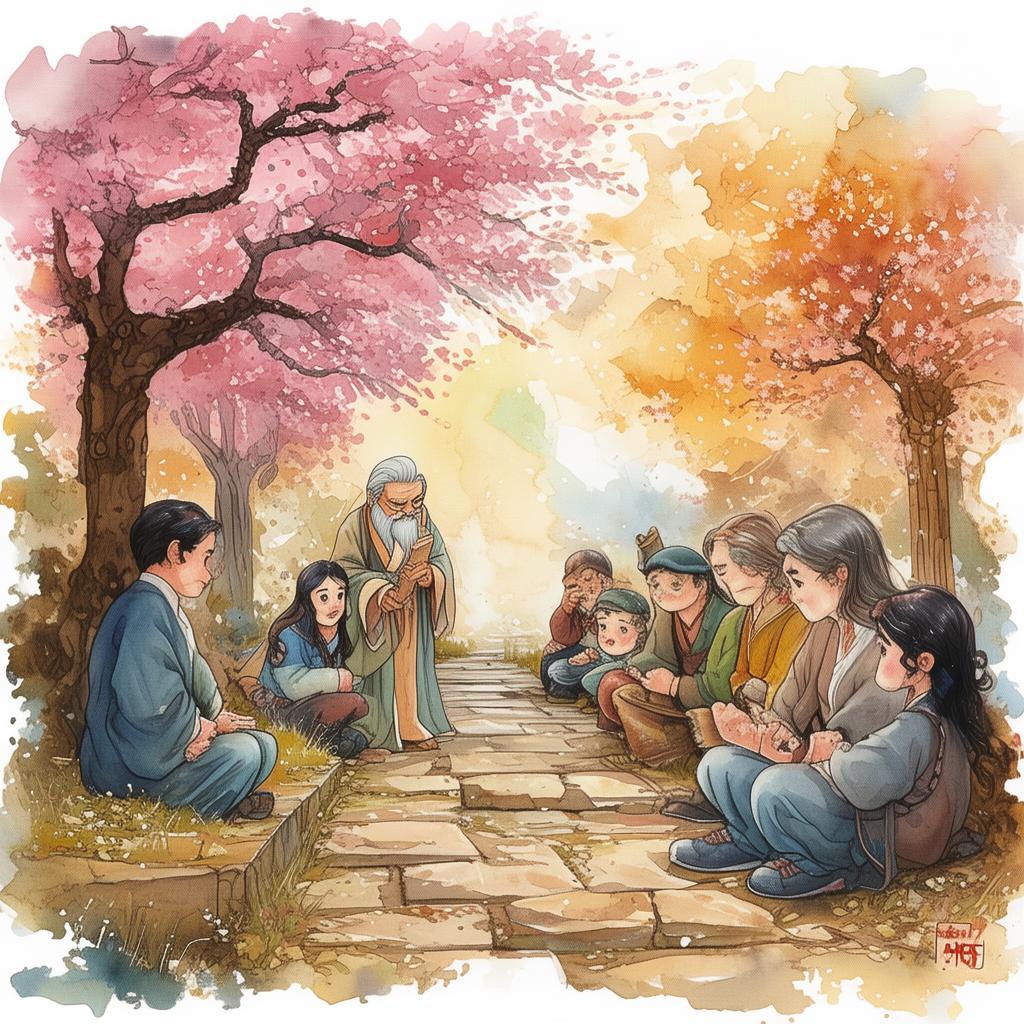Blindfolded Enlightenment: The Monk's Unseen Path
In the serene mountains of ancient China, there lived a monk named Hui Neng, a student of the great Zen master, Shih-t'ou. Hui Neng was known throughout the temple for his profound wisdom and deep understanding of the Dharma. However, he felt that his enlightenment was incomplete. He yearned to experience the ultimate truth of existence, to see beyond the veil of illusion that shrouded the world.
One day, as the sun dipped below the horizon, casting long shadows over the temple grounds, Shih-t'ou addressed his students. "My children, I have a task for you," he began. "I shall blindfold you and lead you on a path. The one who reaches the end first will be my successor."
The monks were taken aback by the master's words. They had never heard of such a test before. But the challenge intrigued Hui Neng. He believed that this was the path to the truth he sought.
The next morning, Hui Neng was blindfolded, and Shih-t'ou led him out of the temple. The monk felt the cool breeze and the rough textures of the path beneath his feet. He could hear the rustling of leaves and the distant sound of water. But he saw nothing.
As they walked, Hui Neng felt the weight of the blindfold, a constant reminder of his reliance on his senses. He began to think about the nature of perception and how it shaped his understanding of the world. He realized that he had always been guided by what he could see, hear, and touch. But what if there was more to the world than what met the eye?

Hours passed, and Hui Neng's mind wandered. He thought about his own life, his struggles, and his desires. He remembered the teachings of Shih-t'ou, which emphasized the importance of seeing beyond the surface. The monk began to meditate, using the walk as a form of contemplation.
Suddenly, he felt the ground level off. He had reached the end of the path. Hui Neng removed his blindfold and looked around. He was standing in a clearing, surrounded by ancient trees and a gentle stream. The sun was now high in the sky, casting a warm glow over the scene.
Hui Neng turned to Shih-t'ou, who was standing a few feet away. "Master, how did I do?" he asked.
Shih-t'ou smiled. "You have done well, Hui Neng. You have learned that enlightenment does not come from seeing, but from understanding the nature of things."
The other monks approached, curious about the master's choice. Shih-t'ou explained that Hui Neng had passed the test because he had realized that true wisdom comes from seeing beyond the senses. He had walked the path not with his eyes, but with his heart and mind.
The story of Hui Neng's blindfolded walk became famous throughout the Zen community. It was a testament to the power of inner vision and the importance of looking beyond the obvious. The monk Hui Neng, who had once sought enlightenment through the lens of his senses, had discovered that the true path was one of unseen perception.
Years later, Hui Neng would become the sixth patriarch of Zen Buddhism, carrying on the teachings of Shih-t'ou and guiding countless students to their own enlightenment. His story served as a reminder that the path to understanding the world is not always a visible one, but one that requires the courage to walk in the dark, trusting in the light that shines within.
✨ Original Statement ✨
All articles published on this website (including but not limited to text, images, videos, and other content) are original or authorized for reposting and are protected by relevant laws. Without the explicit written permission of this website, no individual or organization may copy, modify, repost, or use the content for commercial purposes.
If you need to quote or cooperate, please contact this site for authorization. We reserve the right to pursue legal responsibility for any unauthorized use.
Hereby declared.









